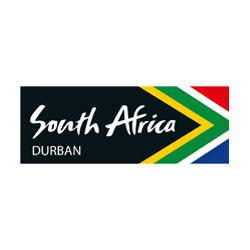In conversation with
Mr. Russell Curtis
CEO | Durban Investment Promotion Agency (DIPA)

FDI Spotlight: Considering the instability South Africa has been experiencing lately, what do think the current appetite for investment is like and which advantages of doing business in Durban would you highlight for investors?
Russell Curtis: Given our recent ratings downgrade, and the instability experienced in the public sector at a National level, investor confidence has understandably taken a hit. The private and public sectors need to do more to find each other again, and continue to promote the good investment opportunities that are available in South Africa, especially in the Metro Port City of Durban. Thankfully the 2017 A.T. Kearney Foreign Direct Investment (FDI) Confidence Index places us in the top 25 countries globally.
As far as Durban goes, the city is open for business. We continually work towards ensuring that the city of Durban is one of the most attractive investment destinations in Africa. The municipality has recently partnered with the World Bank to look at international case studies for inspiration. There are good global examples of what we want Durban to model, and where we want the city to go in the future. This is all anchored to a new city leadership focusing on attracting, retaining, growing and developing not only business trade, tourism & investment, but also our award-winning infrastructure, and human capital base.
Our local investment portfolios are quite diverse and include manufacturing, ICT, maritime and logistics, agri-business, tourism and property development. We have also made significant commitments to creating a more sustainable “green economy” with energy efficiency, renewable energy generation, and healthy, green open spaces.
In addition, we are refreshing our branding & marketing (changing from DIPA to “Invest Durban”). We’re also expanding our work with the World Bank to help us develop an entirely new, global best practice Investment Promotion Strategy & Implementation Plan. This being done whilst we continue to work alongside our fellow Provincial and Metro Departments, the National Department of Trade and Industry, Trade and Investment KwaZulu-Natal, the Durban Chamber of Commerce and Industry, plus the “PPP” KZN Growth Coalition. Other partners include State Owned Enterprises such as Dube Trade Port SEZ, the Development Bank of Southern Africa and the Industrial Development Corporation, working in concert with our world class Banks and Durban’s formalized industrial clusters.
Invest Durban’s primary goal is to facilitate sustainable investment into the city. It is important to remember that when it comes to investing in South Africa, to access Africa, investors should continue to take a longer term, strategic view. This will not only provide a good return on investment but will also allow economic development to grow sustainably, and ride through any challenging seasons.
The concept of a “One Stop Shop” to accelerate large scale investment projects has been one of the city’s, and country’s most important new improvements. This type of concept will provide easier Government access for investors, both local and foreign, and we have created a dedicated team who project manage catalytic, high value projects. The primary objective of the Team is to be available at every stage by providing comprehensive advisory and facilitation services. Currently, there is between 20 and 25 of these high value catalytic projects, totalling nearly USD 10 Billion that they work on daily. Their main focus is to more effectively project manage these processes and relationships. We appreciate that being more customer centric will aid the projects’ overall success, which will in turn accrue greater rewards for the city.
With local knowledge supporting global expertise, our goal is to encourage as many high profile multinationals to take advantage of our diverse business and lifestyle offerings, and see us as the gateway into the African continent. Durban offers investors a range of competitive and strategic advantages: we boast the largest port in Sub-Saharan Africa with a position that allows easy access to international shipping lanes to the Americas, Europe, Persian Gulf, South East Asia, the Pacific Rim and Australasia. To help us lead this we are forming a partnership Advisory Body envisaged locally as “Team Durban”, populated with leadership from Business, and other relevant stakeholders.
Through placing a greater focus on the ocean economy we have the potential to contribute up to R177 billion to the GDP and create over a million jobs locally by 2033. To explore this opportunity further, government has brought together teams from the public sector, labour, business, academia and others to work together in experimental laboratories to further unlock the potential of our country’s vast tourism and coastline.
Durban will also undoubtedly reap many of the rewards set up by Operation Phakisa’s “hurry up” strategy. The city will capitalise on the strategy surrounding the ocean economy, most notably around marine transport and manufacturing, as well as offshore oil and gas exploration. The government and private sector will look at the strategy, skills gaps and investment opportunities, and prioritize this.
So even though the environment for investment has taken a hit, in the medium term we believe implementing these strategies towards global best practice, and in line with our National plus Provincial Development Plans (NDP & PGDP), will see a positive return on investment for all involved, both Business and Government.
Despite the challenges we are still seeing significant foreign investment coming into Durban. In this last year or more, Samsung, DB Schenker, Yangtze Optical Fibre, and Cipla have entered into The Dube Trade Port’s special economic zone (SEZ) for manufacturing. Scores more are in the documented, confirmed Durban Investment Dashboard pipeline of over USD 60 Billion.
According to the World Economic Forum, South Africa is ranked 138 out of 142 in terms of access for SMME’s. What approach needs to be taken to enable such an important area for economic development?
Russell Curtis: We are making considerable changes in Durban to make sure we come closer to understanding the overall challenges and areas of which we can support SMME’s. It is important to work with them more closely at hand in order to ensure that they are supported in the value chains. We are working to bring SMME’s closer to the large multinationals and large local private and public enterprises, to engage and provide them with supply/procurement opportunities, plus practical support platforms.
We have launched a new empowerment framework with stakeholders to increase the level of local procurement and skills to enhance the role of SMME’s in the Durban economy. We have seen a considerable commitment from big businesses working to uplift small business and develop their corporate skills. This falls in line with our strategy to retain, enhance and grow the local economy in urban, township and rural areas. The Enterprise Development models are a great initiative alongside our own eThekwini Business Support Unit strategies, and will increase the level of job creation. It will also bring more black entrepreneurs into the mainstream economy. This does require bigger businesses to firmly take up the Enterprise Development strategies, plus SMME targeted procurement to help drive the shared-growth agenda.
The municipality here has been working hard to uplift SMME’s, as well as Durban for a long time. The eThekwini Municipality has been repackaging qualifying local business support programmes that require partnership with corporates, specifically equity or mentorship, training and support services, plus buying. We ring-fenced these, had them verified and marketed to corporates on various platforms such as our huge annual Durban Business Fairs to facilitate SMME investment & trade. There is a specific focus on Public-Private Partnerships (PPPs) to aid economic development and bring the two sectors closer together. This strategy, as well as a concerted effort on mentorship and other support measures, will be essential to improve SMME’s for long term sustainability in the province.
We’ve also launched Innovate Durban, which is an initiative by the eThekwini Municipality and key local plus international partners to encourage the youth & SMME’s to use technology to address business challenges. This programme is designed to assist Durban to become another of Africa’s Smart and Sustainable cities. We are attempting to put innovation and technology at the core of everything we do, whilst expanding our world class ICT infrastructure.
We won the IBM Smart City challenge in Africa in 2014; we acknowledged some time ago that innovation and ICT will be a primary pillar to ensure radical economic transformation and empowerment in our city. The municipality has been partnering with big business, alongside the Durban Chamber of Commerce and Industry, within the region to support the innovation challenges and Innovate Durban programme. It is undeniable and absolutely critical that we need to create innovative solutions for the challenges of the 21st century. It is one way we are trying to provide greater access, mentorship and encourage SMME development from the ground up.
The international media seems to have negative views of South Africa; clearly the perception does not meet the reality. In an era of periodic Afropessimism – suggesting that Africa cannot be successful – how does this impact your role in promoting investment?
Russell Curtis: The media, both international and local, is typically skewed to the negative. This is not something only South Africa has to deal with, because the news that generally makes it to publication is damaging to the image of the majority of countries and global economies. Bad news seems to sell, sadly.
However, when there is an inherent or perceived negative image being conveyed concerning the African continent, it does make my job more difficult. It highlights the importance of finding the right channels, such as FDI Spotlight and The New York Times, which showcase South Africa’s offerings, opportunities and challenges in a much more comprehensive and detailed manner. It also highlights the damage that can be done if we do not get our houses in order.
It is important to note that when the private sector also actively promotes the country in a positive light, we do get more of the good news out via their channels, and this helps change the perceptions. It does take a joint effort however, and given the current economic environment, we need to promote Durban more, whilst making investments that will create the desired successful future for us all.
KwaZulu-Natal, specifically Durban, has long been in the shadow of Johannesburg (Gauteng) and Cape Town. Gauteng represents the business capital of South Africa and Cape Town may be the international tourism destination most known. What are the differentiating factors you believe make Durban the premier destination in the country?
Russell Curtis: At Invest Durban we created the acronym ALL HITS to promote the 7 key Business trade & investment elements that make Durban unique. ALL HITS stands for: Award Winning City, Lifestyle of Business & Pleasure together, Larger Human Resources Base, Higher Growth Rates, Infrastructure Leader, Tourism Crown, and Substantial, sustainable, diversified business base.
Each of these is backed with recent statistics and awards to substantiate the positive investment framework available in Durban.
We believe ALL HITS provides a clear roadmap for the citizens of KwaZulu-Natal, one to follow with pride, and one for international travellers or investors to investigate, appreciate, and capitalize upon.
